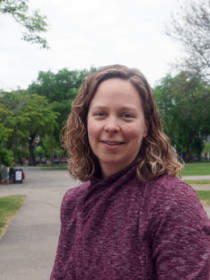Connect with Emily
About Emily
Rauscher's research focuses on intergenerational inequality - or how parents pass on advantages to their children. Overarching themes in Rauscher's writings include identifying when policies such as education funding and compulsory schooling can increase equality of opportunity. Rauscher has provided testimony to the Kansas Advisory Committee of the U.S. Commission on Civil Rights and served as an elected Council Member of the Inequality, Poverty, and Mobility Section of the American Sociological Association.
Contributions
Publications
Finds that when California school districts narrowly pass a bond measure, it improves academic achievement for low-SES but not high-SES students. Discovers these benefits emerge after a delay – while districts make capital investments – and are larger in poor districts. Finds that school facility investments in poor rather than wealthy districts may therefore be more efficient.
Discusses effects of parental homogamy on infant health and how it can help explain racial inequality of infant health and may offer a potential mechanism through which inequality is transmitted between generations.
Conducts interviews of 44 children aged 5-6 about their conception of social change. Finds over the course of repeated interviews that children develop a subtler understanding of money and wealth, and are less reliant on verbal statements of wealth as proof. Notes that while children this age often misrepresent their social class, they are aware of class and can experience relative deprivation compared to other families.
Finds that parental transfers for education have increased, become more commonplace, and are more dependent on parental wealth over time. Finds that young adults in the top quartile of parental wealth received more than 11 times more transfers for education than those below the median. Suggests parental financial help for college is one way socioeconomic standing is transmitted between generations.
Investigates effects of youth employment on teen fertility, following the same cohort over time. Indicates a positive effect of youth employment on adolescent fertility and suggest that extended child labor laws could delay adulthood and reduce teen fertility.
